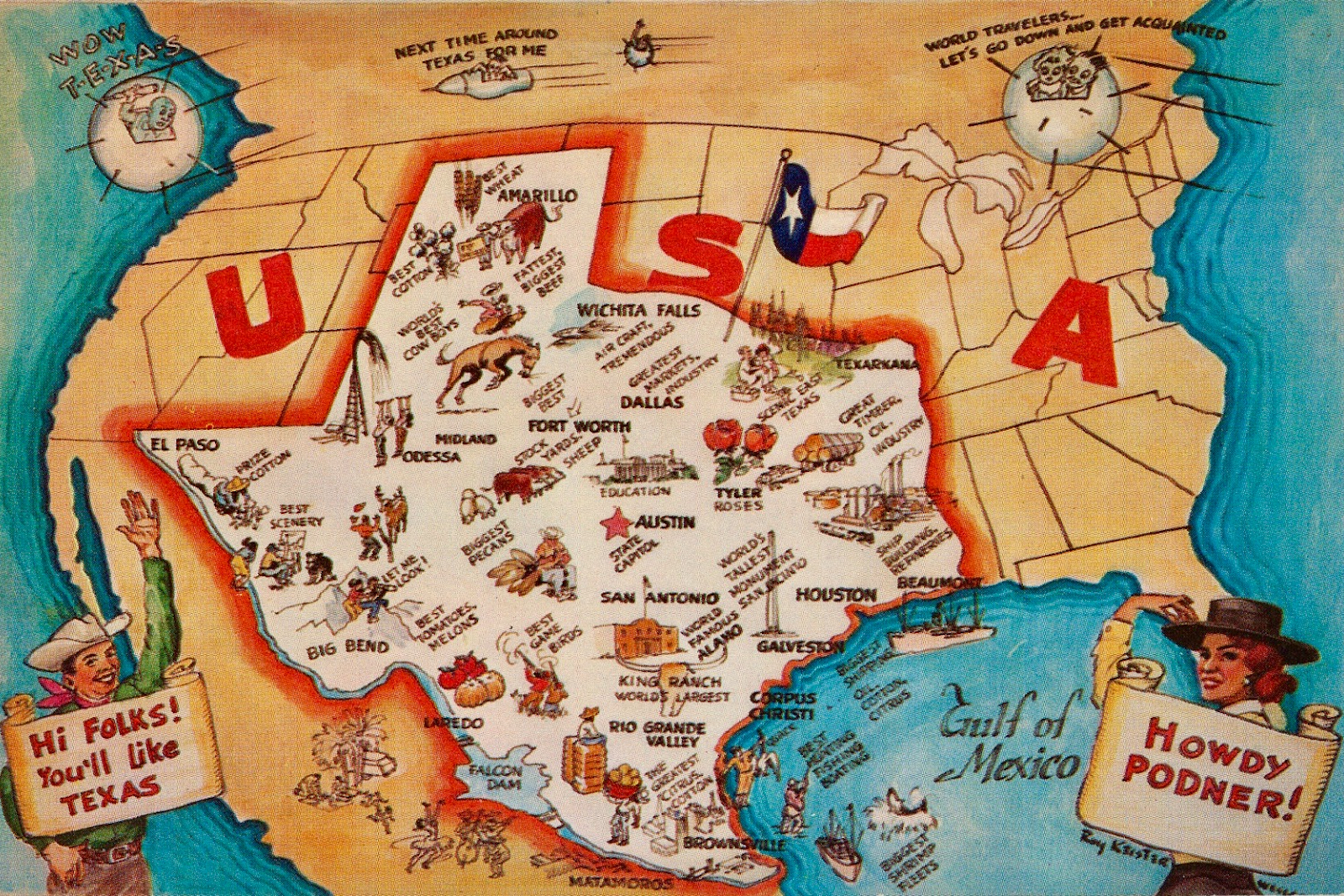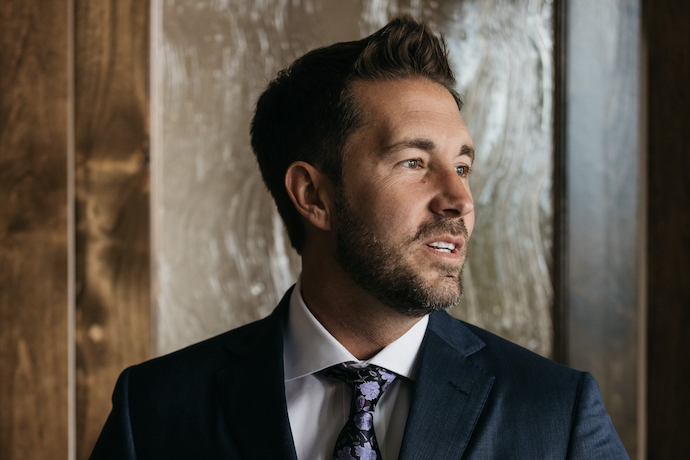
Politics
Can One Texan Save the State from Itself?
Scott Firsing (@scottfirsing), a long-time contributor since 2011, with incisive analyses on topics ranging from U.S. foreign policy to the energy dynamics shaping the Middle East. A sojourn in South Africa only broadened his purview, deepening his understanding of the intricacies of international relations.
It was over a casual coffee in Texas that I had the pleasure of sitting down with Scott. Our conversation quickly turned to a venture as personal as it is ambitious: his candidacy for the Texas Legislature. This chapter follows a rich career that has seen Scott teach at institutions like the Citadel, UNC, and others.
In addition to academia, Scott has ventured into consultancy with Scott Sky Advisors, guiding European ventures through the complexities of the U.S. aviation market. While Austin, Texas, is now home, Scott’s heart and work are global, a citizen of the world as much as of District 47, where he seeks to serve as a representative. His journey reflects a blend of Texan resolve and global sophistication—a narrative that we’re eager to follow into 2024 and beyond.
Congratulations on your decision to run for office. How’s the campaign so far?
Thank you, John. It’s been a while, indeed! We certainly have a lot to catch up on.
Entering Texas politics, somewhat as an outsider, has truly been enlightening. In the last three months, I’ve rapidly learned the intricacies of political campaigning. Initially, it felt quite isolating, grappling with the minutiae—figuring out the paperwork for the State of Texas was a puzzle. Did you know you have to file documents with both the Ethics Office and the Secretary of State? Then there’s understanding who to meet within the Texas GOP and where to get a list of voters.
It’s a complex landscape, but regardless of the campaign’s outcome, I’m confident I could pen an extensive book come November.

The good news is that I’m on a steep learning curve, and I’m running unopposed in the Republican primary this March. I’ve also encountered some wonderful people and supporters along the way, which has been fantastic. The challenging news? Democrats outnumber Republicans in my district. But this only fuels my excitement and motivation!
One aspect that continues to astonish me is the sheer amount of funding necessary for a campaign. We’re talking upwards of a million dollars. It’s a daunting figure, especially for someone like me who aims to avoid being tethered to the more coercive elements of our political system. My campaign is about initiating genuine change and bringing a fresh perspective to the table.
Why run for the first time in 2024? Texas politics in 2023 was madness.
That’s an insightful question. Reflecting on the decision, I turned the question on its head, asking myself, “Why not now?” It reminds me of some excellent advice I got twelve years back from a colleague at Monash University in Australia. She suggested whenever you’re in a rut or seeking innovation, try looking at things from a different angle.
To your point, I’ve never been one to be content on the sidelines indefinitely. I tend to step back to observe and learn initially, but invariably, there comes a moment when the status quo becomes untenable. In 2024, both Texans and the wider American populace are disillusioned with our current political state. The extremism, the perpetual conflict, the careerist politicians, the political vendettas, the corruption, and the dysfunction—it’s all become too much. Politicians seem to be more engaged in conflict than in problem-solving.
Regarding the specific political dynamics within Austin, the Texas Capitol, my focus is elsewhere. I’m concentrating on what will serve the people of my district and Texans broadly. If elected, I aim to foster bipartisanship and unity within the GOP.
My background as a politics professor and educator has honed my analytical skills and my ability to see the big picture—qualities I believe will benefit the Texas Legislature. At 42, with the vitality and motivation to effect change, the timing feels right. Austin is home after seven years, my consulting firm affords me some leeway, and with my children between the ages of 11 and 18, my role is evolving.
Ultimately, it’s a calling for me.
Most of my family and friends are skeptical, to put it mildly.
One friend even remarked, “I wouldn’t wish this on my worst enemy.” Yet, the aspiration to serve has been with me since I returned to the States from South Africa about eight years ago.
Scott, we first connected while you were living in Johannesburg, South Africa. With your extensive time abroad, how have you found the transition back to life in the United States?
Yes, that’s correct. My decade in South Africa and my travels around the globe have given me a trove of stories—perhaps ones to share at another time.
Coming back to the States was indeed a challenge. The phenomenon of reverse culture shock was a tangible experience for me.
However, it’s the connections with people that make a difference. While teaching at Coastal Carolina University, I met Russell Fry, who was a new South Carolina state representative then, when he spoke to my political science class. A stand-up individual. During that period, I was also honored with a Clyburn Fellowship, named after Congressman Jim Clyburn. It fast-tracked my introduction to many influential figures, including Congressman Clyburn and Jamie Harrison, the current Democratic Party Chair.
But after a weekend of training with the South Carolina Democratic Party, I had a moment of clarity—I was aligned with the wrong political philosophy.
My world travels and maturing years have shifted my views significantly. I’ve grown to abhor wasteful spending—something my wife can amusingly confirm. My beliefs are firmly rooted in limited government and personal accountability. Having seen the destructive impact of government overreach and corruption firsthand, I’m convinced of the inefficacy of welfare programs.
This perspective is a far cry from my younger self, who at 24, after an internship at the United Nations in New York, was brimming with idealism.
Returning to America in 2016 presented its own set of puzzles. From wondering why bread doesn’t mold as quickly here to deciphering the American healthcare system, not to mention grappling with the reality of Donald Trump, a familiar figure from boxing matches and reality TV, running for president—it was a bewildering time. But gradually, I’ve reacclimated to American life.

If you win this election, what do you hope to achieve?
At the core of my campaign is the pursuit of sound policy over political maneuvering. I’m seeking substantial, not superficial, solutions. Our world in 2024 is overrun with oversimplified soundbites, but the real solutions we need are far more complex.
Consider the paradox of Texas: we are a titan of economy and energy, yet our property taxes are exorbitant. Despite this, we find ourselves lagging in educational standards. Healthcare and crime rates are areas of concern as well. The state’s expenditure on homelessness exceeds half a billion dollars, yet the issue is visibly unresolved. And the challenges to our border and national sovereignty are pressing and complex. There’s a tremendous amount to address and a multitude of goals to achieve.
But let’s be clear: the campaign’s success isn’t solely contingent on an electoral win. If my efforts inspire others to take a stand and advocate for their convictions, then it’s a triumph in its own right.
Tackling such complex issues as education, crime, and migration is no small feat, but it seems like you’re ready to face them head-on. Aside from your campaign and business, with a family of five, how do you find time for relaxation? What do you do for fun?
Researching political issues and connecting with knowledgeable individuals certainly keeps me engaged, but I do find time for leisure.
Travel remains a favorite pastime, and not just for work with my aviation consultancy. Exploring new places with my wife and family always ranks high on our list of activities.
Home life is quite vibrant—we’re a modern, blended family with five children, horses, two dogs, and a recent addition of a cat, all on a farm. During the Formula 1 season, you’ll usually find us engrossed in the races. We’re certainly never bored.

Taylor and I share a nerdy passion—we aspire to visit the world’s great ancient sites and unravel the mysteries of early human civilizations. A recent trip to the Teotihuacan complex in Mexico City was just one of many such adventures. We revel in drawing parallels between various ancient sites and considering theories like the Younger Dryas impact hypothesis, championed by thinkers like Graham Hancock. It’s a complex, ever-evolving puzzle that delves into the broader human narrative.
And when it comes to unwinding, I’m a movie buff. I fondly recall a high school class where we dissected every scene of Braveheart. That analytical enjoyment of film has stayed with me—it’s a hobby, albeit one that sometimes exasperates my wife. Directing movies would be my alternate career path, with Braveheart undoubtedly ranking in my top five favorites.
Can you talk about where Texas politics fits in the current political climate? Texas has tacked to the right over the years on everything from gun control to abortion. Is the state an outlier or is it representative of the country as a whole?
That’s an important question. To begin, let’s consider the demographic makeup of the more than 30 million Texans. Contrary to outdated stereotypes, the largest ethnic group in Texas as of 2023 are Latinos, surpassing 40%, while whites are just under this mark. Nationally, the figures stand at approximately 59% white and 19% Hispanic or Latino.
On the political front, Republicans maintain control over the Executive and Legislative branches, as well as the Supreme Court in Texas. In the Texas Legislature, ideological diversity exists within the party majorities. Presently, the Texas House is composed of 65 Democrats to 85 Republicans, and the Senate holds 19 Republicans to 12 Democrats. Notably, we’ve seen the highest representation of women lawmakers in recent sessions.
It’s crucial to recognize Texas’ vastness, covering over 250,000 square miles and two time zones, which contributes to its unique political identity. Texas Latinos tend to be more conservative than their counterparts in other states. A 2022 survey highlighted that 40% of Latino voters in Texas identify as conservative, versus 28% in California.
Nevertheless, Texas’ urban areas have increasingly leaned Democratic, with significant victories across major cities like Houston and Austin in recent years.
To address your question directly, while Texas remains comparatively conservative, shifts are occurring. Austin, for instance, has adopted more liberal stances over the past eight years. Social issues like abortion are contributing to a gradual political realignment, aligning Texas more closely with national trends.
Do you think Texas’ conservative stances on certain issues could deter people from moving to the state or even push current residents away?
The data doesn’t suggest that. According to recent estimates from the U.S. Census Bureau, Texas has seen the most significant population increase compared to any other state over the past year. To put it in perspective, out of the 1.6 million people added to the nation’s population between July 2022 and July 2023, nearly half a million became Texas residents—that’s about 30% of the nation’s growth. Going back a decade, from 2010 to 2020, Texas’s population expanded by 4 million, again leading the country.
This surge has introduced new challenges, particularly in urban areas like Austin, where residents are grappling with rising crime rates, escalating housing prices, increased traffic, and infrastructural strain.
Texas has become a magnet for those with libertarian leanings, attracting public figures like Elon Musk and Joe Rogan. What’s the draw?
Individuals like Musk and Rogan were indeed influenced by a combination of factors, with the political climate of California during the pandemic and the pro-business stance of Texas being significant. There’s a lot of commentary on Elon’s political views, and from my encounters with the Rogans, I can say it’s more nuanced than it appears.
Looking beyond these figures, over 100 companies have relocated their headquarters to Texas, citing inflation, supply chain issues, and workforce challenges. The migration isn’t limited to companies; many skilled workers and “average people” are also making the move. Since 2000, California has been the top state sending migrants to Texas, with Millennials accounting for nearly half. The draw? Affordable housing, ample job opportunities, and the absence of a state income tax. Political considerations, such as views on government and individual freedoms, also play into these decisions.
Yet, Texas isn’t without its drawbacks—intense summers and allergies, to name a couple.
In my district, there’s a demographic of financially successful individuals in their 40s and 50s who may be fiscally conservative but hold more liberal views on social issues. This is reflected in my campaign as a “modern” Republican—I’m fiscally conservative but open to progress in areas like medical marijuana.
The debate over school vouchers is a hot topic in Texas. What’s your position?
My stance aligns with supporting the best educational choices for parents and students. As a former teacher, principal, and university professor who has founded private educational institutions, such as the Aerospace Leadership Academy, education is paramount to me. I recognize that each child is unique, requiring a tailored approach to education. Whether it’s public, charter, or private schools, the goal is to foster a passion for learning and prepare students for the Texan and American economies.
I’m currently examining Texas’ education recapture law, “Robin Hood,” which redistributes tax revenue from wealthier districts to poorer ones, totaling around $5 billion, a significant portion of which comes from my district in West Austin. Despite this, Texas ranks relatively low in national education metrics, indicating there’s significant room for improvement. With my background and perspective, I’m confident I can contribute meaningfully to enhancing Texas’ educational landscape.

